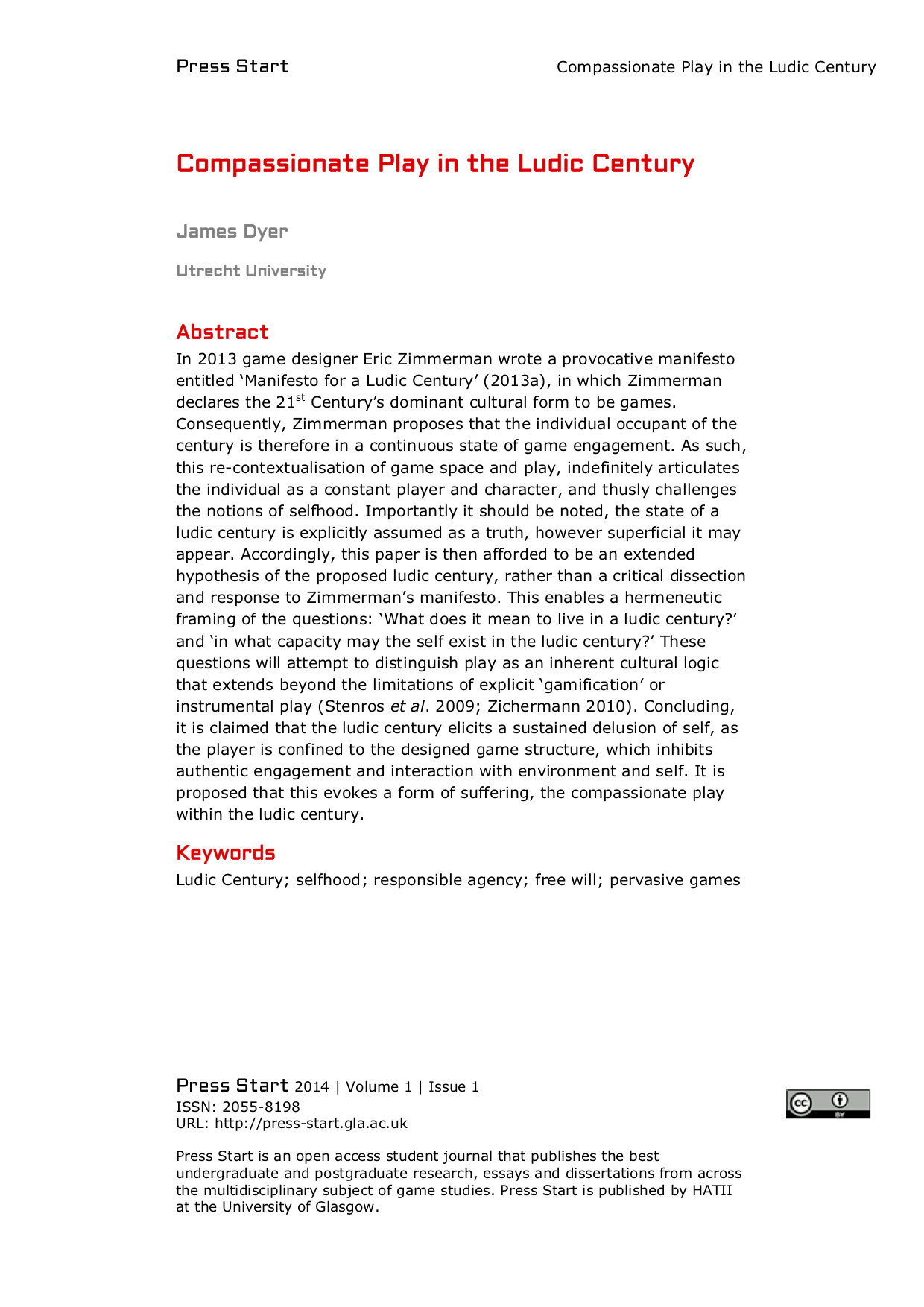Compassionate Play in the Ludic Century
In 2013 game designer Eric Zimmerman wrote the provocative Manifesto for a Ludic Century. Zimmerman declares the 21st Century’s dominant cultural form to be games. Consequently, Zimmerman proposes that the individual occupant of the century is therefore in a continuous state of game engagement. As such, this re-contextualisation of game space and play, indefinitely articulates the individual as a constant player and character, and thusly challenges regular notions of selfhood.
In this brief article, I ask: what does it mean to live in a ludic century? and what are the conditions of possibility for the self to exist in the ludic century? These questions aim to distinguish play as an inherent cultural logic that extends beyond the limitations of explicit “gamification” or “instrumental play”. Ultimately, I propose that the ludic century may be eliciting a sustained delusion of self, as the player is confined to the (homologous) designed game structure as “proper experience”, which inhibits a (paralogical) creative engagement and interaction between environment and self. It is proposed that this evokes a form of suffering; I call it compassionate play in the ludic century.

